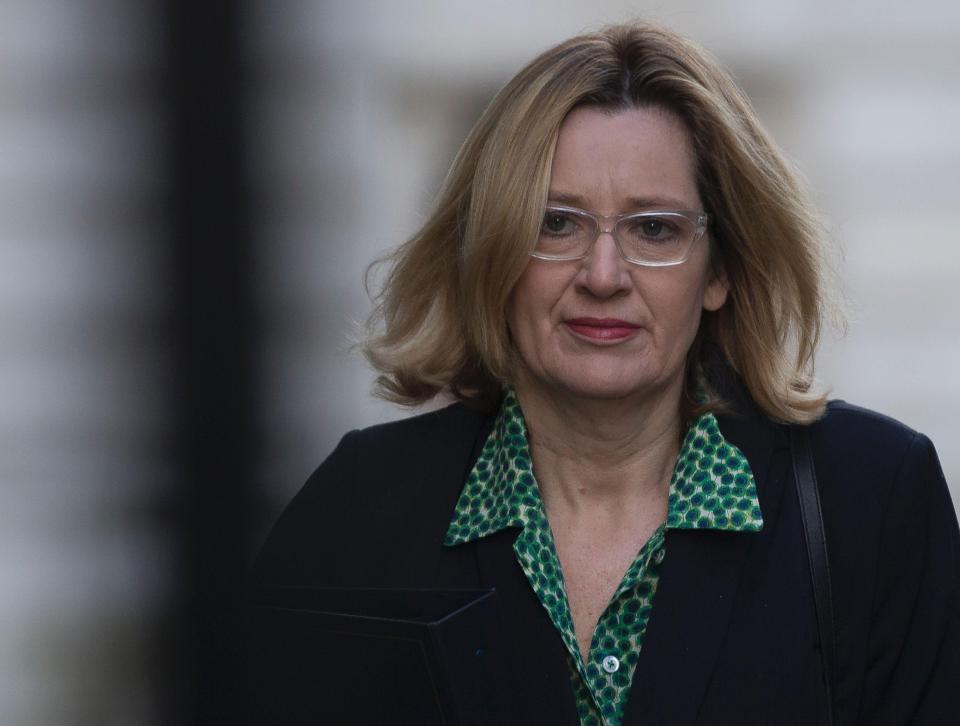More is known about the substance used in the suspected poisoning of a former Russian double agent and his daughter, the Home Secretary has said.

Speaking after chairing a meeting of the government’s emergency committee Cobra, Amber Rudd said the police would be sharing details later on Wednesday.
Sergei and Yulia Skripal were found unconscious in Salisbury on Sunday afternoon and remain critically ill.
Police want to speak to anyone who was in the city centre around that time.
They are particularly keen to speak to people who ate at Zizzi or drank in The Bishop’s Mill pub.
Meanwhile, fire and ambulance crews have been called to an office next to the Zizzi restaurant in Salisbury, but police are refusing to say whether this is connected.
Mr Skripal, 66, and his 33-year-old daughter were found slumped on a bench outside the Maltings shopping centre.
Scientists at the UK’s military research facility at Porton Down have been examining a substance thought to be behind their collapse.
Referring to what she called “the terrible events” in Salisbury, Ms Rudd said: “We need to keep a cool head and collect all the evidence we can.
“We need to make sure that we respond not to rumour but to all the evidence they collect and then we will have to decide what action to take.”
She said the police investigation was likely to be lengthy and it was important to make sure they had the space to continue their investigation.
Earlier, Assistant Commissioner Mark Rowley, head of Counter Terrorism Policing, appealed for witnesses, saying: “Did you see anything out of the ordinary? It may be that at the time, nothing appeared out of place or untoward but with what you now know, you remember something that might be of significance…
“The weather was poor that day so there were not as many people out and about. Every statement we can take is important.”
Cordons have been erected in and around Salisbury. One, at a business park in Amesbury, a town about 10 miles away, has been removed.
Two police officers caught up in the suspected contamination were treated in hospital for minor symptoms – believed to be itchy eyes and wheezing – before they were given the all clear.
A third member of the emergency services remains in hospital.
Relatives of Colonel Skripal, who was convicted in Russia in 2006 of spying for Britain, have told the BBC Russian Service that he believed the country’s special services might come after him at any time.
It has been said his only friends in the UK are in the British intelligence services, but he has also joined his local railway club and given lectures at military academies.
His wife, elder brother and son have all died in recent years.
Ms Skripal lives in Moscow and has visited her father in the UK regularly, especially during the past two years.
Family and friends say she did move to the UK but missed Russia so returned to Moscow where she has worked for multinationals, including Nike and PepsiCo.
It is thought her latest visit to the UK may have been timed to coincide with her late brother’s birthday.
Alexander Skripal died aged 43 last July in St Petersburg from liver failure in what relatives believe to have been suspicious circumstances.
He is buried in Salisbury close to his mother, Liudmila Skripal, who died from cancer in 2012.
The possibility of an unexplained substance being involved has drawn comparisons with the 2006 poisoning of Alexander Litvinenko – a public inquiry concluded the killing of the Russian dissident was probably carried out with the approval of the Russian President, Vladimir Putin.
Former MI5 officer Annie Machon pointed out that the two cases were very different, however.
Mr Litvinenko was a whistleblower, dissident and consultant for MI6 actively at the time of his death, she said, whereas Mr Skripal has already been caught, convicted and pardoned and allowed to freely find safe haven in the UK.
“There’s no conceivable reason that I can see that the Russian state would have been targeting him at the moment,” she told BBC’s Breakfast. “That’s why we need to think about what else he might have been involved in.”
Russian Foreign Ministry spokeswoman, Maria Zakharova, said: “These people have been used by the foreign media for an anti-Russian campaign.
“It’s a traditional campaign. The tradition is to make things up. We can only see it as a provocation.”
On Tuesday, Foreign Secretary Boris Johnson told MPs the UK would respond “robustly” to any evidence of Russian “state responsibility” in the case.
Russia has insisted it has “no information” about what could have led to the incident, and says it is open to co-operating with British police if requested.
The Russian embassy in London accused the media of creating “an impression of a planned operation by the Russian special services, which is completely untrue”.
Kindly follow us on twitter:@AfricanVoice2









